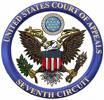Two Views of Constitutional Rights: Anti-Badgering Versus Informed Consent
 This is the fifth in a series of posts reviewing last term’s criminal cases in the United States Supreme Court and previewing the new term.
This is the fifth in a series of posts reviewing last term’s criminal cases in the United States Supreme Court and previewing the new term.
You can tell there are no Wisconsinites currently on the Supreme Court — otherwise, the Justices would not treat “badger” as such a bad word. In an earlier post, I discussed the Court’s marked left-right divide last term in its cases dealing with police investigation practices. To my mind, the most interesting of these cases was Montejo v. Louisiana, 129 S. Ct. 2079 (2009), which nicely exemplifies the competing views of defendants’ rights on the Court.
In Montejo, the Court substantially weakened the Sixth Amendment right to counsel by overturning Michigan v. Jackson, 475 U.S. 625 (1986). Jackson had prohibited police from initiating the interrogation of a criminal defendant once the defendant had requested counsel at an arraignment.
Why did the Court think Jackson unnecessary? The answer lies in the Court’s concern with “badgering.”

 Many thanks to our featured bloggers in November, Professor Lisa Laplante and David Strifling ’04. The featured bloggers for December are Professor David Papke and Stephen Boyett ’09.
Many thanks to our featured bloggers in November, Professor Lisa Laplante and David Strifling ’04. The featured bloggers for December are Professor David Papke and Stephen Boyett ’09. The Seventh Circuit had only one new opinion in a criminal case this week, and it is not one in which the court broke new legal ground. In
The Seventh Circuit had only one new opinion in a criminal case this week, and it is not one in which the court broke new legal ground. In